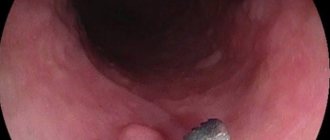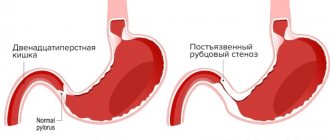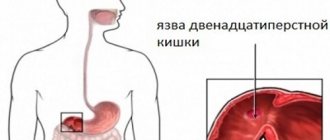Tumor markers - these are substances that are produced by neoplasm cells or nearby cells. To diagnose and monitor the effectiveness of treatment of malignant intestinal tumors, an immunological study is performed to identify tumor markers. Their concentration is influenced by the aggressiveness of tumor growth and the extent of the process, which makes it possible to suspect cancer and evaluate the effectiveness of therapy, and determine the degree of radical intervention.
Types of intestinal tumor markers
Over 200 tumor markers have been identified, but approximately 20 types are identified in clinical practice. Among them are:
- specific markers that most likely indicate a malignant process in a specific location (for example, in the intestine);
- nonspecific markers indicating the presence of malignancy, regardless of its location, or having low sensitivity for intestinal cancer.
To judge the prevalence of the process and the effectiveness of treatment, the concentration of both tumor markers is determined.
Specific
There are no ideal markers that accurately indicate the presence of a malignant tumor in the intestine. The most sensitive for intestinal cancer are:
- Carcinoembryonic antigen (CEA). It belongs to the class of oncofetal markers. Normally, it is produced in the fetus in the stomach and intestines. After birth, CEA production decreases. Its concentration increases significantly in colorectal cancer.
- CA 19-9. This glycoprotein is found in the fetal epithelium of the intestines, stomach, and pancreas. This tumor marker is less specific. Its concentration increases significantly in pancreatic cancer and cholestasis.
- CA 72-4. Its level rarely increases in inflammatory diseases and increases significantly in cancer of the stomach and intestines.
- Tumor-M2-pyruvate kinase (Tu M2-PK). The enzyme is produced in the gastrointestinal tract by proliferating malignant cells. Has 70% specificity for colorectal cancer. Its concentration depends on the stage of the disease. The main feature is that this tumor marker is determined not only in the blood, but also in the feces.
To identify the extent of the process and the presence of metastases, an immunological study of nonspecific tumor growth markers is performed.
Assessing the level of tumor markers in the primary diagnosis of colon cancer is not always justified. The values of tumor markers are not always directly related to the disease being diagnosed. An increase in the indicator may have nothing to do with bowel cancer. Conversely, a low level of a tumor marker does not guarantee the absence of a malignant tumor. An accurate diagnosis can only be made after a complete examination by a specialized specialist.
Be sure to read: Histological examination of intestinal tissue: preparation and implementation
In oncology, tumor markers are used primarily to monitor the patient's condition. If during the initial examination the patient had a high level of a tumor marker, its growth is subsequently monitored. After the tumor is removed, its concentration in the blood decreases sharply. Repeated growth of the tumor marker indicates tumor recurrence.
Nonspecific
Nonspecific tumor markers of intestinal cancer include those substances whose concentration rarely increases in this disease, and those that increase in any type of tumor:
- SA-125. This marker is specific for screening for ovarian cancer, but its concentration is significantly increased in tumors of the gastrointestinal tract.
- SA-242. The determination of this tumor marker is used to identify tumors of all organs of the gastrointestinal tract. It has the highest specificity (95%) for diagnosing pancreatic cancer.
- SCC. This is an antigen for squamous cell carcinomas. Detected in the blood for squamous cell cancer of the anus, vulva, esophagus, cervix, etc.
- AFP (alpha fetoprotein). It is used to detect primary liver cancer. A significant increase in tumor marker is observed with metastatic liver disease.
- CYFRA 21-1. The cytokeratin fragment is a marker of epithelial tumors. Its concentration in rare cases increases with intestinal cancer.
- Trophoblastic Pj-globulin. A significant increase is observed with chorionic carcinoma, chorionepithelioma, and extremely rarely with intestinal cancer.
- TRA. Cytokeratin. Its amount increases significantly with malignant changes in the epithelium. Indicates cancer of the colon and rectum, breast, lungs, cervix, bladder and inflammatory diseases.
- TPS. It is an epitope of cytokeratin. Determination of its concentration is used to monitor the effectiveness of treatment of patients with stomach, breast, prostate, and colorectal cancer.
A referral for tumor marker testing is given by an oncologist . It is the doctor who determines which of the specific and nonspecific indicators of malignant formations are important for diagnosing intestinal cancer and differentiating the disease from benign diseases.
What are tumor markers
Tumor markers are certain proteins found in the blood. In a normal state, their presence can be observed in a healthy person, but only the concentration does not exceed the established norms. In the case of a cancerous phenomenon, such as colorectal cancer, malignant cells begin to synthesize the production of this protein, as a result of which the level of tumor markers in the blood increases. When colon tumors form, tumor markers can be used to identify the location of tumors and determine the stage of development.
Analysis
For analysis, blood is taken from a vein, and stool analysis is also possible. The analysis is carried out in a laboratory equipped for immunological studies. Mostly they are located at oncology centers. Private laboratories also determine cancer markers, but some tests may not be performed there. In order not to waste time, it is better to first find out what tumor markers are determined there.
Before the study you need to prepare:
- 5 days before the study, the doctor stops taking cytostatics and other drugs that affect the results. If he said that medications must be taken, then this factor will be taken into account when deciphering the results.
- Do not drink alcohol, give up cigarettes (at least for 3 days). Alcohol and nicotine significantly increase the concentration of some tumor markers in the blood.
- The day before the analysis, exclude physical activity.
- Blood from a vein is donated on an empty stomach. You cannot eat for 12 hours, and drink tea, coffee, or other drinks for 6 hours before blood sampling.
- Before donating blood for analysis, you need to sit in front of the office for 10–15 minutes to calm down.
Be sure to read:
Rectal cancer: symptoms, stages, treatment and prognosis for life
Before submitting stool for determination of Tu M2-RK, you must not:
- undergo X-ray and endoscopic examination;
- use laxatives;
- give enemas.
Feces are collected in a sterile container.
To correctly diagnose and evaluate the effectiveness of treatment, it is not enough just to detect the presence of tumor markers in the blood. The data obtained must be interpreted correctly.
Preparing for diagnosis
To determine the level of tumor markers, the biological material used is blood. It is necessary to donate blood for tumor markers in the morning, having previously excluded eating food eight hours before the test. It is worth noting that before donating blood to analyze the level of tumor markers for intestinal cancer, drinking drinks such as juices, tea or coffee is also prohibited. Doctors recommend drinking only boiled water.
After donating blood, the result will be ready within one or two days. When conducting a study to determine the level of CA 72-4 protein, it is necessary to take into account the patient’s possibility of taking biotin, because if its dosage is more than 5 mg for one day, then blood for analysis is prohibited within eight hours after the last use of the drug.
We recommend reading: What tumor markers for women need to be taken, their norm and explanation
To determine the level of Tu M2-RK, a stool analysis is performed, and the biological material should not be removed using enemas or laxatives, but obtained only naturally. In this case, the result of such an analysis can only be ready after seven days.
Decoding indicators
There are many methods for determining tumor markers; their concentration is measured in different units, so normal values in different laboratories may vary . When monitoring the effectiveness of treatment, it is necessary to compare indicators.
To make the assessment more accurate, repeat tests are taken in the same laboratory.
| Tumor marker | Norm |
| REA |
|
| SA 19-9 | up to 37 IU/ml |
| SA 72-4 | up to 4 IU/ml |
| Tu M2-RK |
|
| SA-125 |
|
| SA-242 | up to 21.7 U/ml |
| SCC | up to 2 ng/ml |
| AFP |
|
| CYFRA 21-1 | up to 2.3 ng/ml |
| Pj-globulin | up to 5 µg/ml |
| TRA | up to 120 units/ml |
| TPS | up to 120 units/ml |
When interpreting the obtained data, not only the concentration of tumor markers is taken into account, but also their specificity and sensitivity. Some indicators are also influenced by other factors. CEA is increased in smokers and alcoholics.
The concentration of tumor markers increases slightly in inflammatory diseases (pancreatitis, hepatitis, Crohn's disease). Therefore, if tests reveal an increased content of tumor markers, you should consult an oncologist or gastroenterologist.
What to do if tumor markers are detected?
An increased concentration of tumor markers is in no way a criterion for diagnosing cancer. These substances may appear in greater quantities in the blood during benign diseases. In addition, determining the concentration of tumor markers over time has the greatest diagnostic value: has their number decreased or increased after surgery or conservative therapy. Such screening studies are carried out monthly, if metastases are suspected, to monitor the growth of a tumor that cannot be removed for one reason or another.
Be sure to read:
Cancer of the papilla of Vater: symptoms, stages, treatment and prognosis for life
To diagnose intestinal cancer, especially in the early stages, analysis of tumor markers is not enough. If only because these substances enter the bloodstream during intensive tumor growth.
A doctor will suspect bowel cancer when a patient comes to him with the following alarming symptoms:
- sudden weight loss;
- abdominal pain;
- dyspeptic disorders.
To identify malignant intestinal tumors, the following is carried out:
- digital examination of the rectum;
- sigmoidoscopy;
- irrigoscopy;
- MRI, , ultrasound;
- radionuclide studies;
- endoscopy with biopsy.
The most accurate data is obtained by performing a biopsy and subsequent study of tissues and cells - histological examination. It allows you to determine the stage of cancer and therapeutic strategy.
Tumor markers? I haven't heard...
No, we are not talking about alcohol or water markers yet. We are already somewhere at the front of the war against one of the most dangerous human diseases - cancer. With this disease, the resulting malignant cells can release specific proteins into the blood - antigens, which with a certain probability tell doctors about the presence of the disease. These proteins are called tumor markers, and the process of taking a blood test to identify these proteins is called testing for tumor markers. Fortunately, our intestines are a rather complex structure, so today there will be plenty of intestinal tumor markers.
According to their type, diseases are divided into specific markers - those that largely indicate localization, and nonspecific markers - which simply confirm the presence of the disease. In any case, the diagnosis is carried out in a complex manner, since false results are possible.
What to do if the diagnosis of cancer is confirmed?
The final diagnosis of bowel cancer is not a death sentence. As soon as the doctor has identified a malignant formation, treatment must begin. It is strictly not recommended to visit grandmothers, grandfathers, herbalists, and psychics. This way you can survive to stage 4 with metastases and painful death.
Cancer, especially in the initial stages, is successfully treated with:
- operations;
- radiation therapy;
- drug treatment (chemotherapy, cytostatics, hormonal drugs).
Moreover, at the initial stages of the disease, organ-preserving operations are performed.
In later stages, radical methods of therapy (resection) are resorted to, and additional radiation and chemotherapy are required.
If it is not advisable to undergo surgery for a malignant tumor or all possible treatment methods have been exhausted, they resort to palliative care.
The success of therapy largely depends not only on the stage of the disease, but also on the patient’s attitude towards treatment. If you initially imagine yourself to be terminally ill, then it is more difficult to expect a positive effect.
In continuation of the topic, be sure to read:
- Details about bowel cancer: stages, symptoms, treatment and prognosis
- Details about the coprogram: preparation, conduct and interpretation of the analysis
- How to check the intestines for oncology?
- Intestinal tumors: types, symptoms, treatment methods and prognosis for life
- Irritable bowel syndrome: symptoms and treatments
- Causes of abdominal pain: pathological and non-pathological cases
- Rectal fissure: causes, symptoms and treatment of pathology
- The procedure for performing an enema with a syringe to cleanse the intestines
- How to take a stool test for intestinal microflora?
- How to take a stool test for helminths and their eggs?
Application of tumor markers
Do you suspect colon cancer? Well, these are just suspicions. In general, first you need to see a doctor, and they will tell you what to do. What's all this for? Yes, no talk about anything. The bottom line is that tumor markers can be used not only for your primary diagnosis, but also for other processes. Here we will get acquainted with this.
Here's what they let you know:
- Is there bowel cancer or not?
- Recognition of precancerous conditions for prevention.
- Recognition of the type of carcinoma, clear classification.
- In some cases, it is possible to establish localization only by analysis.
- Monitoring after treatment to prevent repetitions (relapses).
- Monitoring the correctness of diagnosis and therapy.
- Help during the treatment process.
And all these functions can be freely used when working with intestines.











